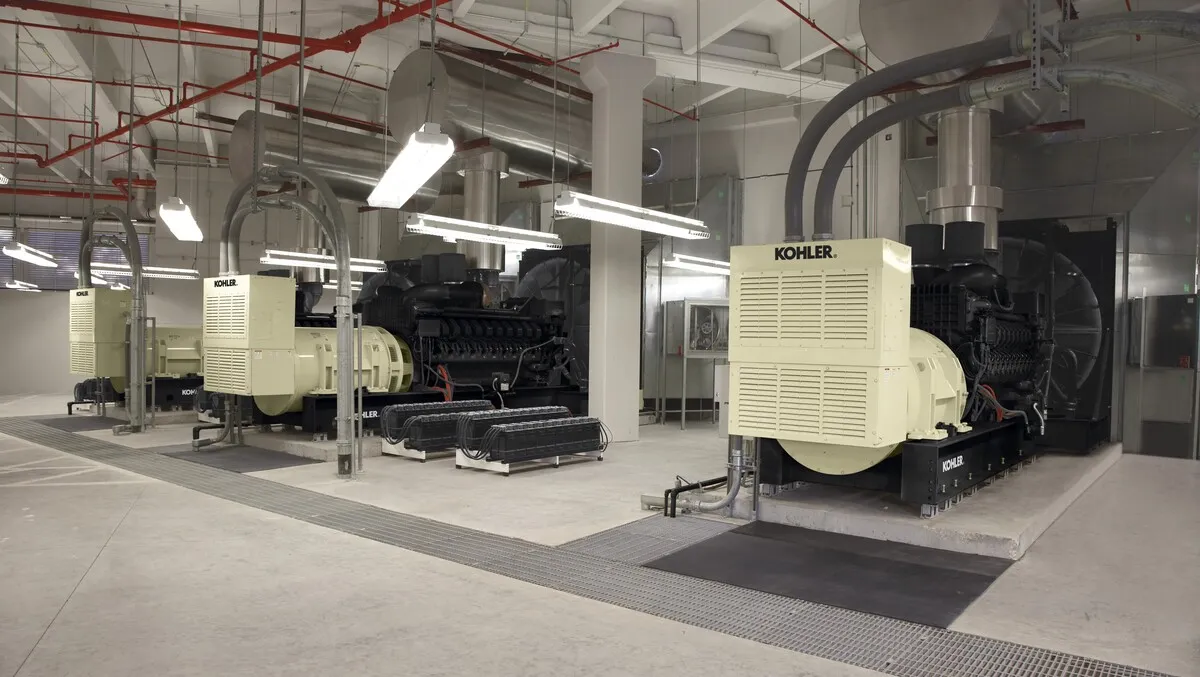
Cut emissions and TCO with a new approach to generator maintenance
In response to the growing impact of climate change, governments in Southeast Asia are increasingly committing to ambitious CO2 emission-reduction targets, obliging organizations in the region to comply with increasingly strict regulations. The diesel generator, currently an essential component of any mission-critical power system, is an obvious focus of many corporate sustainability programs, putting pressure on manufacturers to produce "cleaner" generators. Recent investments in advanced technology have resulted in a new generation of highly efficient diesel generators, and operators who choose to replace fossil diesel fuel with HVO (Hydrotreated Vegetable Oil), a third-generation biofuel, can reduce their carbon footprint even more by up to 90%. Beyond deploying the latest-generation diesel generators, operators can reduce emissions further – and save costs – with a new approach to genset maintenance.
Even though diesel generators spend much of their time in an idle state, only coming to life when grid power is lost, current maintenance practices involve running them regularly throughout their lifecycle. These maintenance operations, essential in ensuring that the generator is ready and available at all times, are usually a condition of the genset manufacturer's warranty and sometimes even mandated by local legislation.
Regularly running a generator throughout the year in this way obviously contributes to CO2 and other emissions, as well as adding operational costs. Now, however, Kohler's newly launched Conscious Care program enables operators to save up to US$1300 per generator per year while reducing maintenance-related emissions.
In this article, we look at how the Conscious Care program leverages the latest genset technologies to change traditional approaches to diesel generator maintenance.
Traditional generator maintenance adds load
Traditional maintenance programs require generators to be run under partial load conditions, normally at 30% of their rated capacity, to avoid "wet stacking", which occurs when the generator operates below its recommended temperature. Under these conditions, a build-up of unburned fuel in the engine's exhaust systems reduces generator performance, shortens its operational life, and limits the effectiveness of after-treatment technologies, resulting in higher emissions. Running the generator under partial load ensures the correct operating temperature and avoids "wet stacking" but causes higher emissions and is a costly procedure, using additional fuel and incurring extra labour costs.
Kohler's Conscious Care removes the load
Kohler's Conscious Care program recognizes that the combustion efficiencies achievable with modern engine design reduce hydrocarbon accumulation at low loads and enable traditional maintenance schedules to be reviewed. This innovative maintenance program enables exercises to be run with no load and only requires 10-minute generator runs, compared to traditional durations of 30 minutes to one hour.
The Conscious Care program is being rolled out on Kohler's KD Series generators, which employ advanced fuel system and combustion chamber techniques, such as multiple fuel injections per cycle, to optimize the combustion process. Customers following the Conscious Care program reduce emissions and save money through reduced fuel consumption and the avoidance of the operational costs involved in setting up load tests. Generators can be exercised under no-load conditions, whether on monthly or four-monthly cycles, with only an annual load test required.
Quantifying the savings
Although the above changes may seem minimal, significant emissions reductions and financial savings can be made by switching to a no-load maintenance program such as Conscious Care. A monthly no-load exercise schedule will enable the operator to reduce annual emissions by 40%, rising to 70% with a four-monthly schedule.
On the cost side of the equation, an unloaded generator consumes much less fuel than a partially loaded one and even when staying with a monthly exercise schedule, no-load exercising can reduce fuel consumption by 44%. This saving can rise to as much as 71% if the exercise frequency is increased to four months. Based on current average diesel prices, this can add up to total annual savings of as much as $1,300 per generator, where a four-month schedule is adopted.
Load tests also bring extra operational costs. Heavy load banks and cabling runs must be connected to generators, leading to additional labour costs, and many operators choose to rent rather than purchase load banks.
For operations which depend upon multiple generators, these annual fuel and operational cost savings can mount substantially.
No load exercising also brings other benefits: a generator is quieter when running with no load and generates less exhaust smoke since it doesn't have to adjust to step changes in load. No load exercises can also be run in idle mode, with the slower engine speed further reducing perceived noise levels by over 50%.
Greener and lower-cost maintenance
Users of diesel generator sets are under increasing pressure – external and internal – to decarbonize their operations. For many of these organizations, reliable power is a mission-critical requirement, and the diesel generator is unmatched in its ability to reliably deliver essential resiliency. Manufacturers such as Kohler have invested significantly in making their products more environmentally friendly, and now the innovative Kohler Conscious Care program offers further reductions in both costs and emissions without compromising either the performance or reliability of the generator. By switching to 'no load' exercising as part of their maintenance program, operators can reduce both emissions and TCO – a true win-win scenario.
Kohler recognizes the importance of cleaner energy sources to a sustainable future and has the resources and expertise to deliver innovation in mission-critical power generation. The Kohler Conscious Care program is an example of Kohler's continuous improvement culture, and we are using this approach to add more intelligence to the generator, continually reducing fuel consumption and bringing down costs and emissions even further.